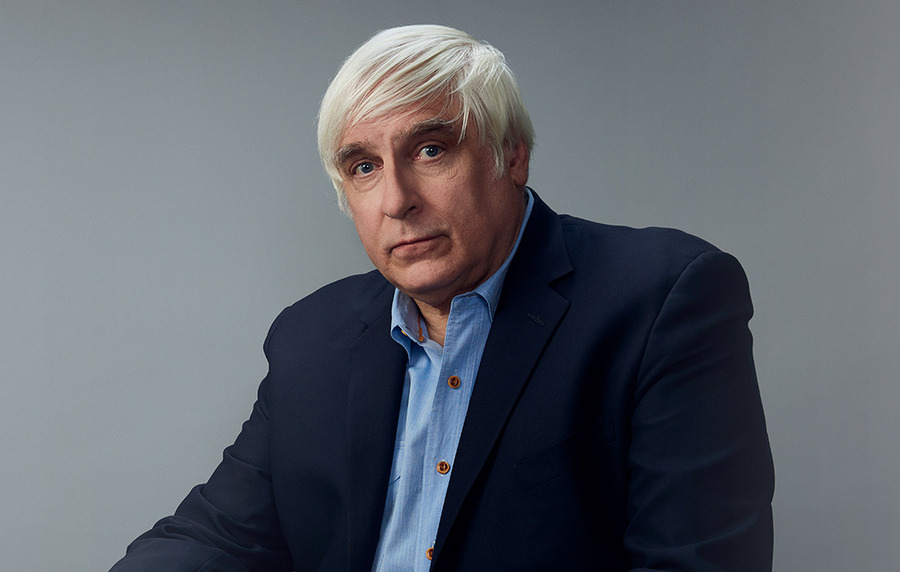On Aug. 20, the theatre community lost a dear and true friend, Bruce E.H. Johnson, who was 74.
For many decades, Bruce was a tireless and fierce First Amendment attorney who lent his expertise to the theatre community in support of freedom of expression. As a partner at the law firm of Davis Wright Tremaine LLP for half a century, he was one of the country’s foremost First Amendment lawyers and the author of a major treatise on media law.
I came to know Bruce as a kind, soft-spoken, and thoughtful man in my work with him. He was a man who quietly lived his values.
About 15 years ago, I received a call from Curious Theatre Company in Denver. They were requesting help with a legal case. It seems that the Colorado State Legislature had passed a statewide smoking ban that did not exempt smoking in theatrical productions. Curious and two other theatres—Paragon and Theatre 13—had taken the Colorado Department of Health to court in response to the ban. The three theatres argued that smoking onstage is expressive behavior and is thus protected by the First Amendment.
In October 2006, a Denver district judge rejected their argument, and in March 2008, an appellate court followed suit. In December the following year, the theatres took the case to the Colorado Supreme Court. It too upheld the earlier court decisions denying an exemption for theatrical smoking. After I was contacted by Curious, I naturally reached out to Bruce for advice. At that time, he was a member of TCG’s National Council for the American Theatre and a trustee of Seattle Rep, his hometown theatre. He generously offered to work with TCG pro bono to support the theatres. TCG filed several amicus briefs on behalf of Curious, Paragon, and Theatre 13. The briefs were all penned by Bruce. He was the counsel of record; he worked with two other attorneys at his firm and two lawyers from Colorado. But it was Bruce’s work and his passion.
His 21-page amicus brief to the U.S. Supreme Court is a tour de force on First Amendment Law. The brief beautifully, eloquently marries his extraordinary legal expertise, his love of theatre, and his flair for written expression. The Supreme Court unfortunately declined to take the case, as no other top state court had ruled on a similar issue at the time of the Colorado Supreme Court decision.
Bruce’s work on freedom of expression for theatre was not a one-time effort. In 2012, just as David Adjmi’s play 3C was set to open at Rattlestick Playwrights Theater, the producers were served with a cease-and-desist order by DLT Entertainment Ltd., the owners of the copyright for the sitcom Three’s Company. The order alleged that Adjmi’s play, which critiques and spoofs stereotypical mores of 1970s America, infringed on Three’s Company’s copyright. As Adjmi told The New York Times, “I can’t afford a fancy lawyer… and I was getting all sorts of conflicting advice from my agents…and my producers, some of whom doubted that the play would meet the legal standards of parody.”
The resulting press coverage caught the attention of Teresa Eyring, TCG’s then executive director, who put Adjmi in touch with Johnson who, once again, offered his services pro bono. He said, “Because we care deeply about the theatre…meritless legal claims should not be used to block free speech.”
It took three years, but a New York District Court Judge finally ruled in the playwright’s favor. As outlined in this American Theatre story, “The ruling—in which the judge wrote that ‘despite the many similarities between the two, 3C is clearly a ‘transformative use’ of the ’70s sitcom—means that the play can now be published, licensed, and performed beyond its initial run at Rattlestick Playwrights Theater in the summer of 2012.” This victory then allowed TCG to publish 3C.
For nearly two decades, Bruce was an indispensable member of TCG’s National Council for the American Theatre, from 2005 until his death. Bruce served on the Seattle Rep board of trustees from 1993 to 2020, and was its chair from 2004 to 2006. In addition, Bruce served on the Seattle Rep Foundation Board from 2004 to 2024, and as its chair from 2011 to 2024.
Bruce cared deeply about Seattle Rep and about the work we do at TCG, and about the entire theatre community. His financial support was generous. But it was the gift of his passion and expertise in First Amendment Law—and his thought partnership with us—that will be most profoundly missed.
Laurie Baskin is the former director of advocacy for TCG.





